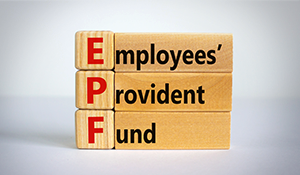The new labour code has become a trending topic. The media has been buzzing with information on what it means to employers and employees. But many organisations and their HRs continue to have questions that confound them.
Whether you are all agog or in a quandary, we have something that’s likely to interest you. There are several frequently asked questions, related to the new codes, that we all have in mind.
Recently, we invited three subject matter experts to put their heads together at our Parichay Webinar Series. They came, delivered and enlightened the attendees. They not only gave descriptive answers to most of these questions but also shared their valuable points of view.
Read on.
When will the new labour laws be implemented?
It’s unclear, at this moment, when the codes will be implemented. The implementation of the much-awaited new labour laws was scheduled for July 1, 2022.
But the same has been deferred since some states are yet to frame the rules under all the four labour codes.
Will variable payments and similar one-time components, like joining bonus or loyalty bonus, be excluded or included?
Such payments will be classified as wages. A voluntary payment made by an employer will not fall under the exclusion criteria.
Are there any valuation criteria for remuneration in kind?
The standard definition of 'wage' encompasses all the monetary payments and benefits offered in kind, except for some specific exclusions. As of now, the law does not mention how the payments in kind will be valued. Therefore, it is advisable to follow the minimum wages laws /income tax laws until the government provides further clarification.
Are there any changes to the scope of ESIC benefits under the new law?
As per the new law, the ESI benefit will be extended to the workers of the unorganised sector and gig workers. Organisations in hazardous areas of work have to register mandatorily.
Is there a possibility for India to sign a Social Security Agreement with the US and the UK?
Slim. As of today, the number of Indians working in the US or UK is much higher than the number of their people working here. We would be in a better position to bargain with these countries only after a balance is achieved.
Why do organisations choose to close their PF trust and transfer the corpus to EPFO?
These companies may not be in a position to find the right investment options. Secondly, the trust may have been formed with the belief that they can offer better services. Now that the EPFO has upgraded its technology and services, it might make more sense for them to close their trust. Administrative complexity is likely to be another challenge for these companies.
There is a blackout period in the transition process followed by a PF trust. Is there a way to avoid this?
When an exempted trust applies to the EPFO for transferring their PF corpus, the process can take a couple of months. During this period, neither the EPFO nor the employer can settle claims. This is called the blackout period. But the employer can choose to settle claims or pay advances to those in need, provided it has been decided before the commencement of the transition process.
Meet our esteemed speakers
- Rajesh Bansal, Ex-Additional Central PF Commissioner (HQ)
- Adarsh Vir Singh, Founder, Nidhi Niyojan Inc.
- Anurag Jain, Co-founder, ByTheBook Consulting (Special Moderator)
Missed the live conversation?
Listen to the recording of the entire webinar









